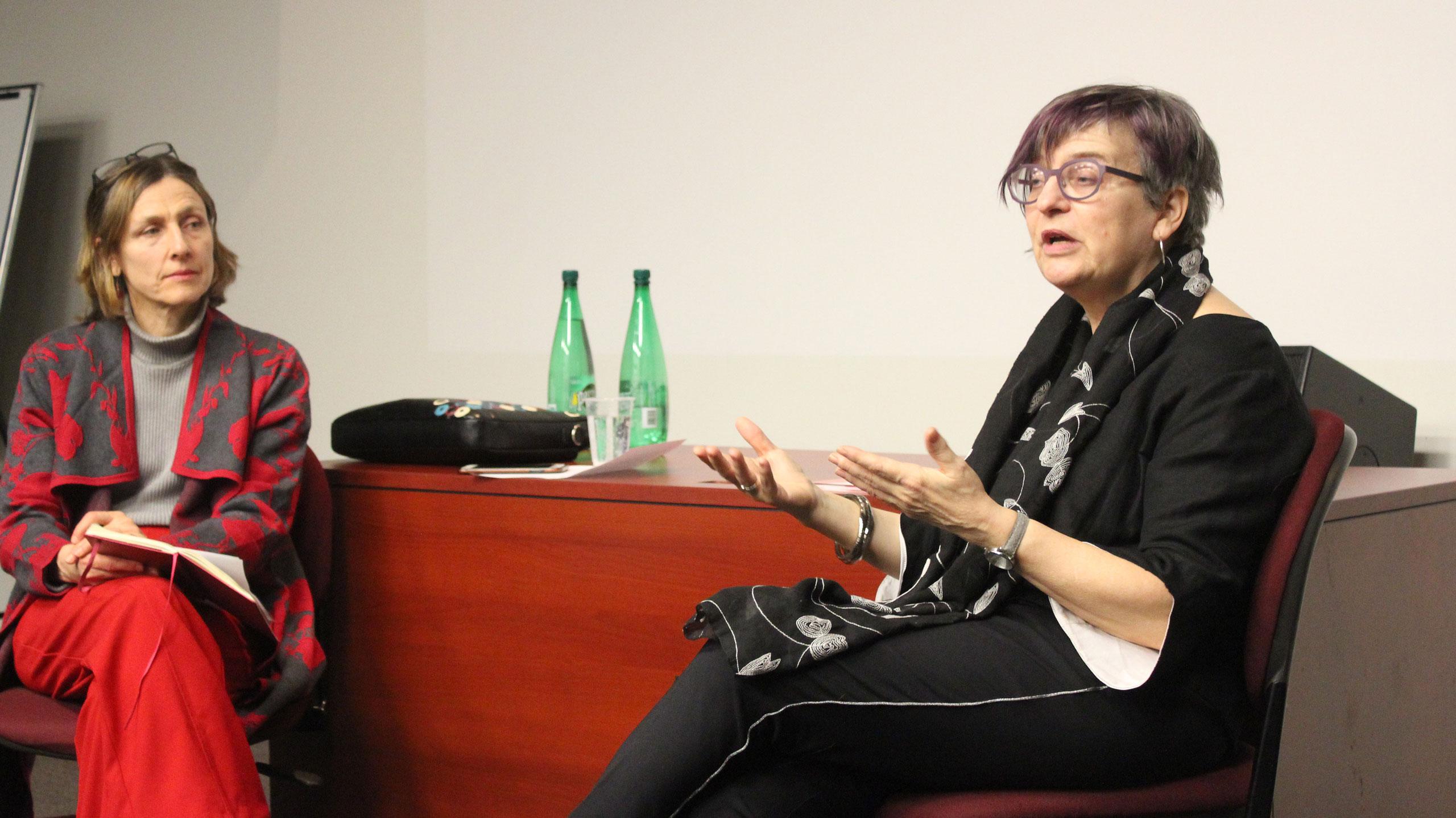By Adam Chen
Filmmaker Marusya Bociurkiw said a screening of her Ukranian documentary “This is Gay Propaganda: LGBT Rights and the War in Ukraine” in 2015 was raided by far-right activists, one of them proclaiming “today a film screening, tomorrow an orgy!”
Shortly after, Bociurkiw said pro-LGBTQ+ rights Ukrainian activists printed the statement onto their shirts.
Bociurkiw’s provocative documentaries explore the overlooked and intersectional stories of local and diaspora communities within Canada and her family’s country of origin, Ukraine. During an event on Tuesday evening in the Media Commons Theatre at Robarts Library, clips highlighting the past two decades of her films were shown while she answered questions from a largely Ukrainian-Canadian audience of 30 people.
Bociurkiw is an associate professor in the RTA School of Media at Ryerson and the director of the Studio for Media Activism and Critical Thought. Bociurkiw uses her art as a form of activism, which is why she says she was recently awarded Ryerson’s Knowledge Mobilization & Engagement Award.
Ihor Tomkiw, a retired Ukrainian-Canadian public school teacher and a member of the LGBTQ+ community, said that Bociurkiw’s film shared a story that was unheard within Toronto’s often morally conservative Ukrainian diaspora population.
“So many people, they think LGBT and they just think sex,” said Tomkiw. “They don’t realize we’re just like everybody else, we have the same problems, we go to school, we have relationships, and we care about community.”
B0ciurkiw said this moral conservatism results from past Ukrainian immigrants being forced to leave due to war and trauma. The period between the two world wars saw 70,000 Ukrainian war veterans, intellectuals, and rural farmers move to Canada for political and economic reasons. 34,000 more Ukrainians were displaced and settled in Canada as a result of the second world war.
Bociurkiw said these Ukrainian Canadians are preserving their culture as they knew it prior to leaving. “What doesn’t develop, necessarily, are things like identity politics, feminism, LGBTQ [rights]” Bociurkiw told The Eyeopener.
Ksenya Kiebuzinski, the co-director of the Petro Jacyk program for the Study of Ukraine at the Munk School of Global Affairs, said that Bociurkiw’s work is helping to increase awareness of the diversity that exists within the Ukraine.
“She’s changing people’s attitudes,” said Kiebuzinski. “It’s not just some backwards country, it’s part of Europe, it’s part of a global world.”
Her upcoming film “Post Revolution” highlights the overlooked role of women during Ukraine’s 2013 Euromaidan revolution in the capital city Kiev, where hundreds of thousands of protesters clashed with the police over the government’s decision to favour closer ties with Russia and the Eurasian Economic Union over the European Union.
“The impression I got was that women were completely behind the scenes making sandwiches,” said Bociurkiw, describing how the international news coverage of the revolution she’d seen prior to her arrival to Ukraine in 2014 did not accurately show the diversity of the protestors.
Bociurkiw’s newest project, “Post Revolution”, will follow the women and activists of the revolution five years after it took place. A release date has not been set.
Correction: This article has been updated with the correct spelling of Marusya Bociurkiw’s name.










Regina
You misspelled her name in the lede.